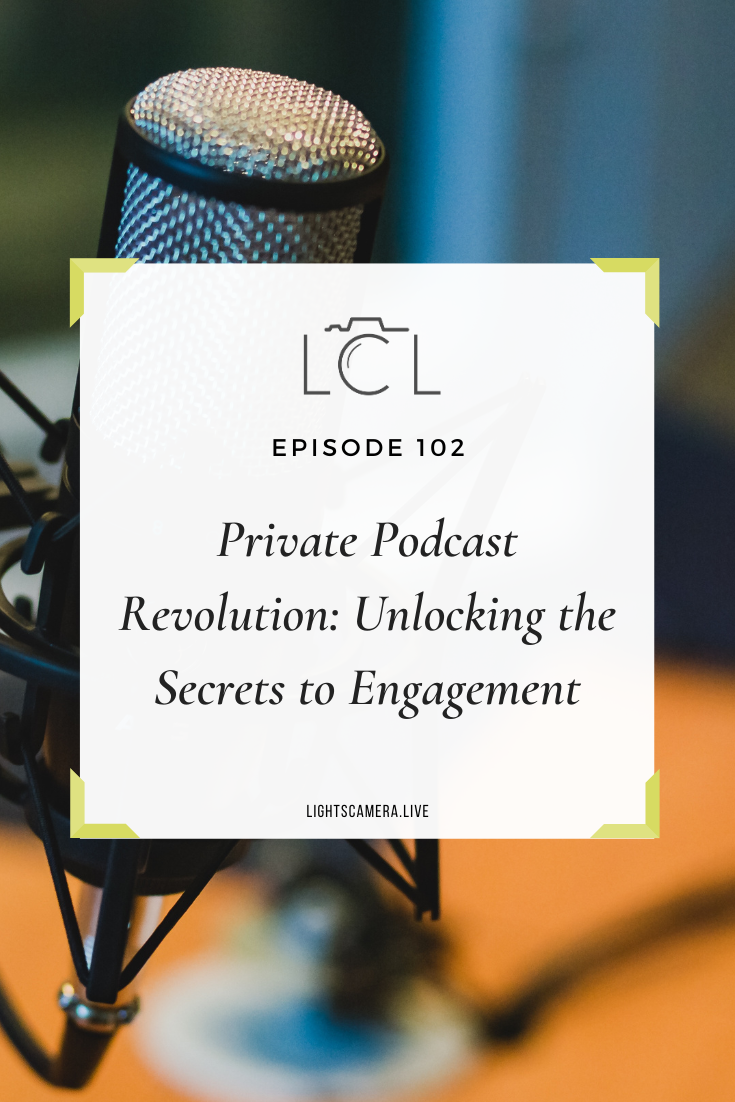In a world saturated with video and text-based content, there's a new revolution brewing in the digital realm - the rise of private podcasting. But how is it distinct from traditional public podcasting? Why is it becoming an increasingly popular avenue for content creators?
Join us as we delve into the intriguing world of private podcasting, guided by the insights of Dr. Lindsay Padilla, CEO of Hello Audio.
In this episode, you'll learn:
What is private podcasting?
The inspiration behind Hello Audio
The applications of private podcasting
What is Private Podcasting?
While public podcasting refers to the shows we know and love, available to anyone with a podcast player, private podcasting is an entirely different beast.
In private podcasting, content is gated and not searchable or accessible on conventional platforms, such as Apple Podcast. Hello Audio developed this private podcasting format to give content creators more control and insight into their audience.
With public podcasting, for example, shows with millions of downloads don't necessarily know who's listening. But with private podcasting, you can see who your listeners are and monitor their engagement.
“In private podcasting, you know who’s listening. You can see who your listeners are and see when they last listened.”
Another aspect of private podcasting is the protection of content. Hello Audio took care of the URL protection to ensure that only the right people can access your content. This functionality is crucial, especially considering a content creator might have paid content on their podcast.
What’s the inspiration behind Hello Audio, and how did it become successful?
The inspiration behind Hello Audio stems from Dr. Lindsay Padilla's audience and personal brand. As a former community college professor on the tenure track, she needed a simple way to convert course content into audio. This realization sparked the idea for Hello Audio, a platform designed to make learning more convenient and engaging on the go.
Dr. Lindsay Padilla's focus on user experience and increasing course completion rates have been instrumental in the success of Hello Audio. The platform's built-in 'flywheel' and partnerships with affiliates have also contributed significantly to its growth and retention of users.
With a strong emphasis on user satisfaction and organic growth, Hello Audio has succeeded without heavily relying on paid advertisements.
What’s the value of private podcasting for content creators?
Hello Audio is helping content creators create mini apps that enhance their courses and programs, making them more efficient and enabling students to achieve on-demand results without direct access to the creator or coaching calls.
By harnessing the power of AI, Hello Audio facilitates student progress within courses and programs, whether inside the course itself or through lead magnets. The focus is leveraging technology to empower students and drive them forward in their learning journey.
In what other ways can people use Hello Audio?
There are numerous ways to leverage Hello Audio. One is to use it for team training or making company-wide announcements. Some businesses use it for client onboarding, especially if their service is costly - it's an efficient way to make customers feel valued.
The key is keeping the format similar to a podcast. There's a use case for 'podcasting at work,' though for now, Hello Audio isn't pursuing the big enterprise market.
What is the advantage of audio content over video content?
Audio content has the advantage of being easier to update and edit than video content. For instance, if there are changes in tactics or updates needed in the content, it's less complicated to edit and re-upload audio files than to redo video content. This lack of visual components in audio content eliminates concerns over consistent lighting or appearance changes that can make it obvious a video was edited or updated. Additionally, when a new or edited audio file is uploaded, it notifies listeners of the update, making it very convenient for the audience.
Private Podcasting: Is it for you?
So, is private podcasting for you? If you value control over your content, crave deeper insights into your audience, and seek a more efficient way to update your content, private podcasting could be the game-changer you've been looking for. Embrace this revolution in content delivery and unlock new possibilities for engaging your audience like never before.
you might also like:
DISCLAIMER: This website contains affiliate links, which means that if you click on one of the product links, I receive a small commission. This assures that we can continue bringing you valuable content. Thank you for supporting Lights, Camera, Live! We only link to products we use or are highly recommended by trusted sources.





